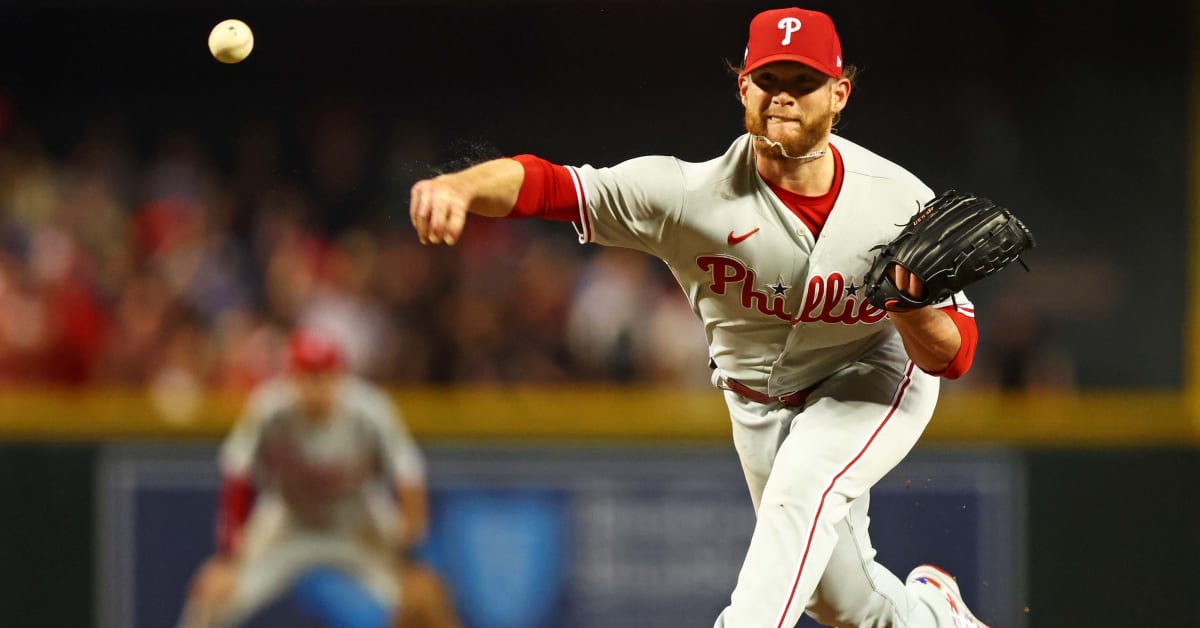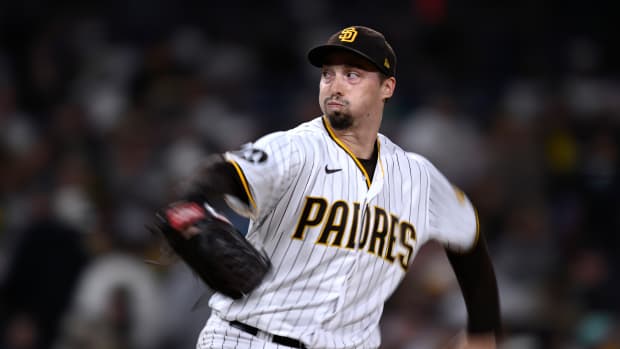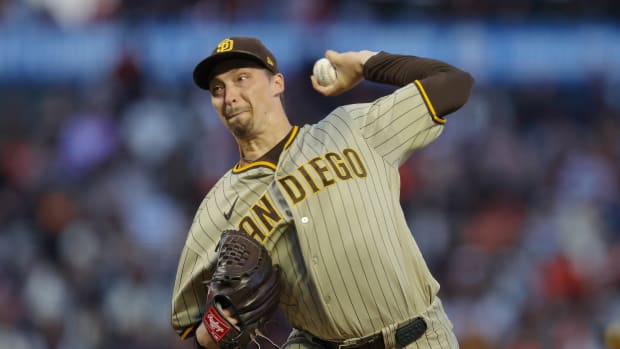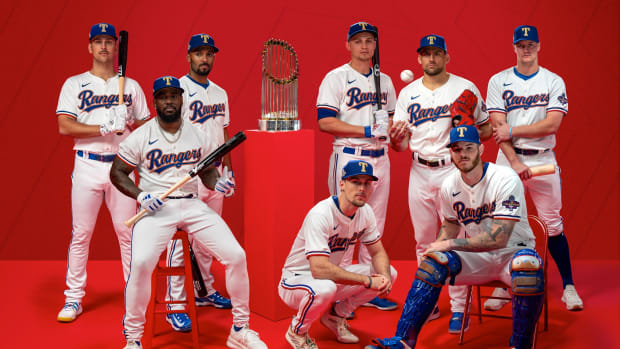How the Phillies Went From Unstoppable to Unsteady
He had just blown his second straight save, and Craig Kimbrel was not interested in analyzing the particulars. What happened on that 3–2 fastball to Alek Thomas?
“Well, he hit it over the fence,” Kimbrel said.
If they had called upon someone other than their closer on Thursday and Friday night, the Phillies might be celebrating a pennant in the pool beyond the centerfield fence at Chase Field. Instead, the Diamondbacks won a dramatic Game 4, 6–5, a day after winning a dramatic Game 3, 2–1, and a National League Championship Series that once seemed over is now tied at two games apiece. It’s now a best of three.
“The last two games sucked,” Kimbrel said. “I cost us two games.”

Phillies relief pitcher Craig Kimbrel’s role as closer is in question heading into Game 5.
Mark J. Rebilas/USA TODAY Sports
He had help. This Phillies bullpen was supposed to be better than last year’s—was supposed to be the reason a team that fell two games short of a title last year could win one this year—and it mostly had been, until the team plane touched down in Phoenix. Kimbrel had not allowed a run in four 2023 postseason appearances, nor had rookie Orion Kerkering or fireman José Alvarado, in five each.
Then they got here. In Game 3, Kerkering faced three batters, got no outs and let the Diamondbacks tie the game. Alvarado, asked to clean up, pitched two scoreless innings, but Kimbrel allowed two walks and two hits in the bottom of the ninth to end it. In Game 4, starter Cristopher Sánchez lasted only 2⅓ innings, forcing manager Rob Thomson to go to his bullpen in the third. By the time he summoned Kerkering in the seventh, Thomson had already used one of his most trusted relievers, Jeff Hoffman, and two others a step down, Matt Strahm and Seranthony Domínguez. Kerkering is supposed to reside at about Hoffman’s level.
But on Friday, he could not find the strike zone. He threw 13 pitches, nine of them balls, and walked in a run before escaping the seventh. When Kimbrel entered in the eighth, the Phillies led 5–3. It was clear almost immediately that he could not land his curveball for strikes, so Arizona hitters could look for the fastball. He fell behind the first three hitters he faced, giving up a double, inducing a lineout and then leaving that fastball where Thomas could get it.
“I wouldn’t say location was terrible,” Kimbrel said. “He put a good swing on it.”
That’s true, but pitching coach Caleb Cotham referenced the baseball adage that solo home runs won’t kill you. The problem is that Kimbrel keeps putting men on base.
“That’s the difference in the last two games from the first two games,” said catcher J.T. Realmuto. “We’re turning our 0–2, 1–2 counts in the first two to now they’re 3–1, 2–0 counts. That's how you turn good hitters into great hitters, and that’s kind of what we’ve been doing the last two nights.”
Desperate to avoid Alvarado after his extended usage in Game 3, Thomson let Kimbrel face Arizona’s hottest hitter, second baseman Ketel Marte (single), and probably its most talented player, right fielder Corbin Carroll (hit by pitch). Finally Thomson called on Alvarado after all. He allowed an RBI single to the first hitter he saw, catcher Gabriel Moreno, and that was enough.
Cotham could not identify a mechanical problem with Kimbrel. “He wants to do good,” he said. “There’s probably a little bit of over-try.” Realmuto said he thought the game had sped up a bit on Kerkering and on Kimbrel.
Meanwhile, Arizona manager Torey Lovullo has been lamenting for days that his club has not been playing “Diamondbacks baseball,” by which he means avoiding physical and especially mental mistakes. Neither team must have made him particularly proud on Friday. In the second inning, Phillies third baseman Alec Bohm airmailed a throw to first on a grounder. Two batters later, Sánchez forgot how many outs there were, throwing to first on a comebacker without attempting the double play. During the next plate appearance, Realmuto let a ball scoot under his mitt. The Diamondbacks made their own mistakes in the sixth, when a wild pitch got caught in Moreno’s chest protector and advanced a runner who later scored, and third baseman Emmanuel Rivera made a throwing error to let in another run.
“It was a sloppy game all around,” Realmuto said. “It’s unacceptable to play that way in a game this big.”
Tomorrow’s game will be even bigger, and it has the potential to be sloppier. Both teams start their aces—Zack Wheeler for the Phillies, Zac Gallen for the Diamondbacks—but both bullpens will be depleted. On Friday, the Diamondbacks used every reliever except mop-up men Slade Cecconi and Ryne Nelson, both of whom pitched on Thursday; higher-leverage arms Andrew Saalfrank, Ryan Thompson, Kevin Ginkel and Paul Sewald have all pitched on back-to-back nights. The Phillies used everyone except long men Michael Lorenzen and Taijuan Walker; Kerkering, Hoffman, Alvarado and Kimbrel have all gone back-to-back.
Already the Phillies are seeing the downside of such heavy usage of their top relievers. “I was looking for a pitch in a particular way, and the previous at-bat definitely helped,” said Moreno of facing Alvarado.
Alvarado insisted he would “absolutely” be available on Saturday. Kimbrel said of himself, “We’ll see.” Cotham said the team would wait until morning to make any such decisions. Cotham and Thomson also said they would have to discuss whether Kimbrel would remain the closer or would see some lower-leverage situations. Two days ago, the Phillies looked World Series bound. Suddenly they might be demoting their closer. The series is speeding up on them.





































